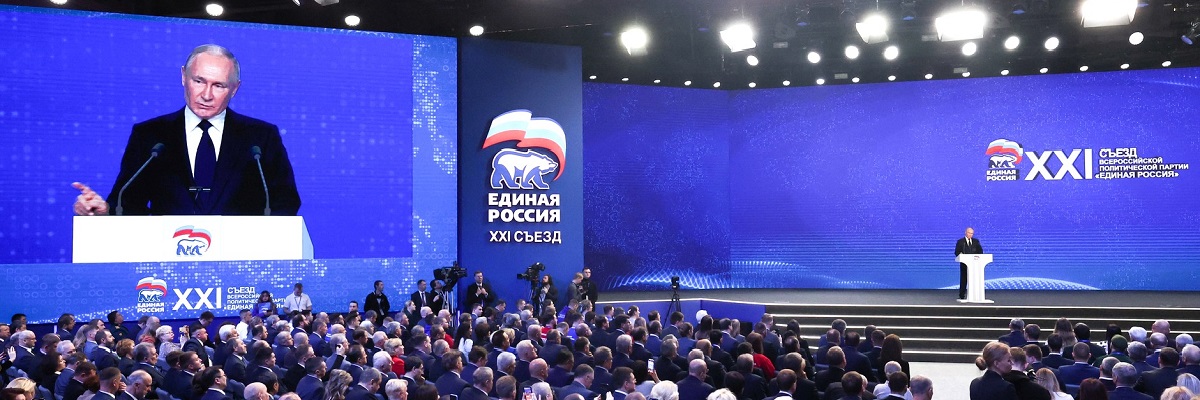Defense & Security
Russia's fateful triangle

Image Source : Wikimedia Commons
Subscribe to our weekly newsletters for free
If you want to subscribe to World & New World Newsletter, please enter
your e-mail
Defense & Security

Image Source : Wikimedia Commons
First Published in: Nov.30,-0001
Feb.29, 2024
The news of the death of Alexei Navalny, a symbol of the political opposition to Vladimir Putin's regime, in a prison 60 kilometers from the Arctic Circle, has shocked Western public opinion, but comes as no surprise. Since coming to power in 2000, Putin has resorted to the physical elimination of his political opponents as a tool to stay in power and terrorize the opposition. First he used it against the oligarchs who enriched themselves during Boris Yeltsin's two presidential terms. Then journalists, such as Anna Politovskaya, who criticized him and reported on the Chechen war, were murdered. Then Boris Nemtsov on the Kremlin bridge in 2015, while numerous other opposition politicians were imprisoned. Since the beginning of the war in Ukraine, several people who opposed the invasion have "committed suicide". Navalny, who had already in 2020 been poisoned with novichok, a chemical nerve agent to whose use only high-ranking government or military officials can have access, had defined Putin's United Russia party as that "of criminals and thieves". He was also the driving force behind the massive anti-regime demonstrations during the winter of 2011-2012 (the largest so far), over alleged electoral fraud in regional elections. The most defiant figure to Putin's regime, Navalny has paid with his life for the one message he insisted on sending to Russians: that they should fight for freedom. Navalny's death is yet another symptom of what is really happening in Putin's Russia. The next presidential elections will be held March 15-17. Putin is certain to win them. The disappearance of the political opposition to the Russian regime has not translated into a mass protest of the population nor - more importantly - into a vote against the government. Boris Nadezdin, baptized by Western journalists as "the candidate for peace" will not be able to run in the elections because the Russian Supreme Court has upheld the decision, taken by the Central Electoral Commission, to invalidate 100,000 signatures endorsing his candidacy, under the generic pretext of "irregularities". Nadezdin advocates an immediate truce and a transition to peace negotiations in trilateral format involving Russia, Ukraine and the West. According to him, the decision on the fate of the territories annexed by Russia should be based on the will of the people who lived there before the conflict. The war in Ukraine, now entering its third year, is the cause of the breakdown of relations between Russia and the West and Russia's growing dependence on the "axis of the sanctioned" (North Korea, Iran and China). Ukraine is losing on the battlefield due to lack of ammunition and war fatigue affecting both its own population and its allies. The prospect of Donald Trump's victory in November this year further darkens its future, as NATO countries will not be able to overcome an eventual suspension of U.S. military aid to Ukraine, as the alliance's secretary general has warned. The war is turning into a competition between the Western and Russian military industries. If Europe does not wake up, Ukraine and its allies will lose everything that Kiev has so far gained, thus fulfilling Russia's goal of turning its neighboring country into a failed state. The Western allies had managed to provide Ukraine with significant political, military and economic support during the two years of war. However, it is not so clear that they are prepared for a long war nor for the containment and deterrence of Russia, although it is well known that investing in deterrence is always cheaper than investing in open warfare. Navalny's death, Putin's electoral victory and the long duration of the war in Ukraine are the fateful triangle that the Kremlin now opposes to the West, a triangle strengthened by the shameful silence of the majority of the Russian population, a silence that is a consequence of the tyranny and information manipulation carried out by the regime, but also of its political apathy.
First published in :

FAES Analysis Group
Unlock articles by signing up or logging in.
Become a member for unrestricted reading!